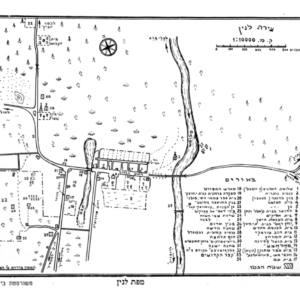I meet with my JP adviser every other Monday morning. No matter how hard I try to beat procrastination, the weekend before each meeting is always an anxious scramble to complete a draft. On Sunday night, I worry that I’m unforgivably behind schedule, that my topic was a bad choice, that my writing is incoherent.
From conversations with my friends, I’ve realized that wanting to avoid our advisers is totally normal. It can be scary to share our work—especially when it’s unfinished, and especially when the reader will eventually be grading it. But as I’ve learned over the past semester, though it can be terrifying, meeting with my adviser has only helped and reassured me in the research and writing process.

When I feel anxious the Sunday before an adviser meeting, I’m not actually worried about what my adviser will think. I’m worried about having to confront my own work. If I send only a two-page draft, I have to admit to myself that I’m behind schedule. If my argument isn’t fully baked, I have to admit that I haven’t yet figured out how to approach my topic. If my writing is confusing, I have to admit that it needs a lot more editing.
Admitting mistakes or weaknesses is always hard. It feels so much easier to pretend they don’t exist—to convince yourself that you’ll be on schedule soon, that there are no holes in your argument, that your writing needs no editing. However, as difficult as it may be, confronting these questions regularly not only improves your work, but prevents a flood of buried anxiety at the end of the project.
For me, meeting with my adviser every other week has helped me face the issues I tend to avoid. I’m fortunate to have a caring, thoughtful, and discerning adviser. His feedback and guidance have been invaluable for my work this semester. But one of the ways he’s been most helpful has been in silently pushing me to confront my own work.
When I send him a draft on Sunday night, I start to worry about all of the things he might say— even though I know he is always reassuring and encouraging. As I’ve realized, these worries are ultimately about myself, not about him. And they are worries that I probably wouldn’t confront if I didn’t have to share my work with someone. Even if my adviser has only positive feedback for me the next day, this self-derived list of potential problem areas (sometimes written down, sometimes just in my head) can be super helpful in guiding my work over the next week.
It is totally normal to want to avoid meeting with your adviser. It can be scary to face your own work. But the more you meet with your adviser, the stronger your work will be—not just as a result of their feedback, but also as a result of your own consciousness of your work. Of course, this does not only apply to independent work adviser meetings—visiting a professor during their office hours, making an appointment at the Writing Center, or even sharing your work with a friend can help you identify the areas you feel need more attention.
–Rafi Lehmann, Social Sciences Correspondent

